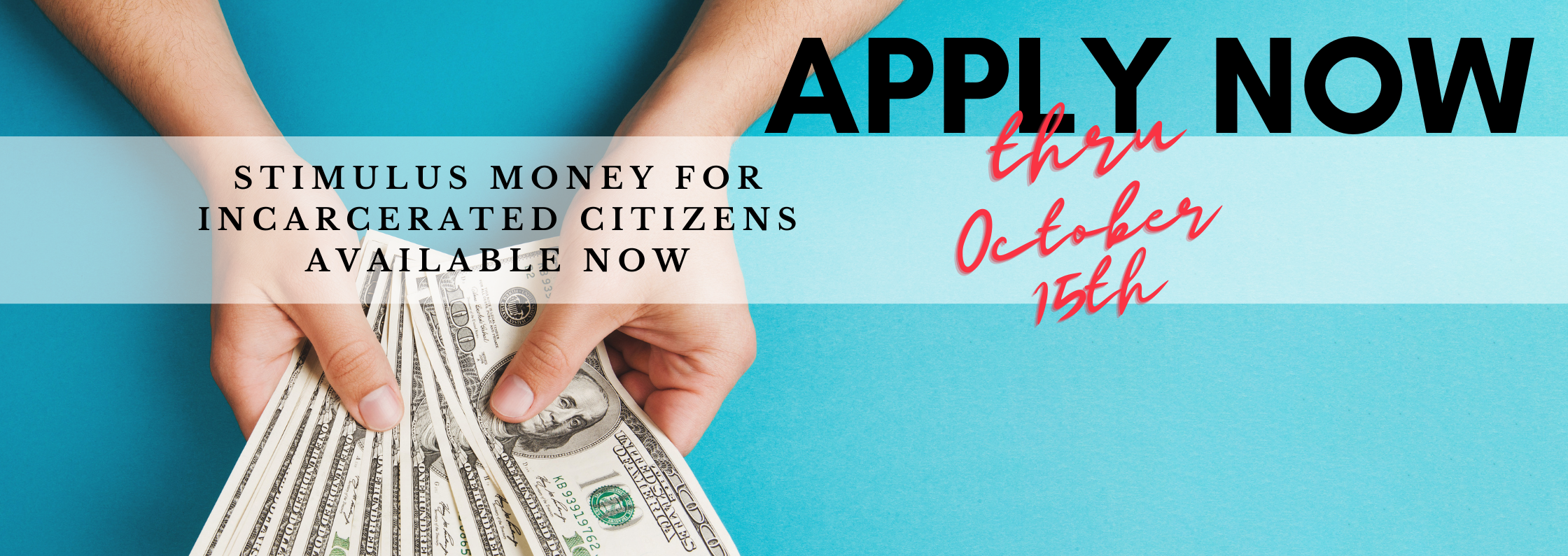On May 11th, while thousands of people were cashing their stimulus checks, I published an article on SawariMedia about why People in Prison Should Receive Stimulus Money. The reasons, in my eyes, were obvious: people in prison make cents to the dollar (if anything) hourly for the work that they do if they are able to secure one of the very competitive working positions in the prison. Working and nonworking prisoners are dependent on outside networks (families, friends, grassroots groups, and nonprofit organizations) to support them financially as well as emotionally, psychologically, educationally and even recreationally. After the initial passage of the CARES Act, SawariMedia worked with Spread the Vote to aid people with incarcerated loved ones through the process of obtaining stimulus funds, several of those applications were denied without clear reasoning. It seemed as though the longer someone had been incarcerated, thereby the longer that they went without reporting their income, the less likely their application for stimulus money would be approved. This is complicated by the fact that people in prison are not required by law to report their earnings because their annual wages fall far below the minimum threshold. Many of our readers were incarcerated as minors and as a result do not have any reportable earnings on record with the IRS, instant denial, but the need is too tremendous.
In response to this critical complication, during the onset of Black August on August 1, 2020, Lieff Cabraser and the Equal Justice Society filed a lawsuit against the United States Department of the Treasury and Internal Revenue Service. This suit was filed on behalf of people who were incarcerated at any time from March 27, 2020 to the present in either state or federal prison. The lawsuit not only defended prisoners right to receive the stimulus funding that was sent to United States citizens in response to the Coronavirus pandemic, but it also established a new class of people, the prison class, a class of people that Jailhouse Lawyers have been fighting to legitimize throughout prison resistance actions of the past decade. The lawsuit sought to have the court order the United States Department of the Treasury and Internal Revenue Service to issue CARES Act stimulus relief to all eligible incarcerated people, up to $1,200 per eligible person plus $500 per qualifying child.
Interestingly, the CARES Act did not initially carve incarcerated people out of receiving stimulus funds, but upon receiving several application denials for people behind the wall it became very clear of the legislature’s intentions, to make sure no one in prison got the checks they needed. How is it possible that governing officials could fail to see the severe need for pandemic aid funding that would offset the overcrowded, dilapidated conditions of the prison system? This groundbreaking case is incredibly significant in the prison resistance movement by legitimizing the lawful citizenship of people in prison, negating the slave status assigned to them by the 13th amendment, while also legitimizing their role as the earners and parents in the households from which they’ve been stripped from during this global pandemic.
It wasn’t until September 24th, after hundreds of lives had been lost to Covid-19 behind the wall, that the federal government solidified the process for incarcerated citizens to receive stimulus funding, on that date, “Judge Phyllis J. Hamilton of the U.S. District Court for the Northern District of California issued an Order certifying a nationwide class of people incarcerated in state and federal prisons, and granting the plaintiffs’ motion for preliminary injunction requiring the U.S. Department of Treasury, the U.S. Internal Revenue Service, and the United States of America to stop withholding CARES Act stimulus funds from plaintiffs or any class member on the sole basis of their incarcerated status.”
In an attempt to aid as many incarcerated citizens and their families as possible SawariMedia will be hosting a webinar in partnership with Spread the Vote this Friday at 1:00p EST. Spread the Vote has already disseminated the information on the updated CARE Act to dozens in-house contacts at jail facilities that we are working with through the Vote by Mail in Jail program. We urge people with incarcerated loved ones to let them know about the stimulus check opportunity as soon as possible and to join Amani Sawari on Friday, October 9 at 1:00p EST via facebook live for How to Get Stimulus Money for Incarcerated Citizens for a presentation on how to apply for funds correctly. People who would like to assist incarcerated citizens who do not have someone on the outside to apply online on their behalf are also encouraged to attend the facebook livestream.
In preparation for the webinar you should have your loved one review the attached flyer created by the Lieff Cabraser and the Equal Justice Society along with the Non-Filers Payment information page and this sample 1040 form. Applicant Assistants also make sure that the prisoner has access to a bank account, with your name attached to it. A loved one can the prisoner’s your name to an already open bank account or they can create a new one. The quickest and easiest pathways for opening a bank account without having to be present at the banking institution can be done through Chime, Cash App or Venmo. In order to create an account with one of these vendors you will need your social security number, permanent mailing address and a unique telephone number that the account can be linked to. If the applicant assistant already has an account with one of these banking vendors linked to their phone number then they will have to pick another one that they do not use to link their phone number to for the incarcerated person.
Register and submit questions for Friday’s walkthrough presentation here: https://forms.gle/BpAgDoXumatbmfpZ8

